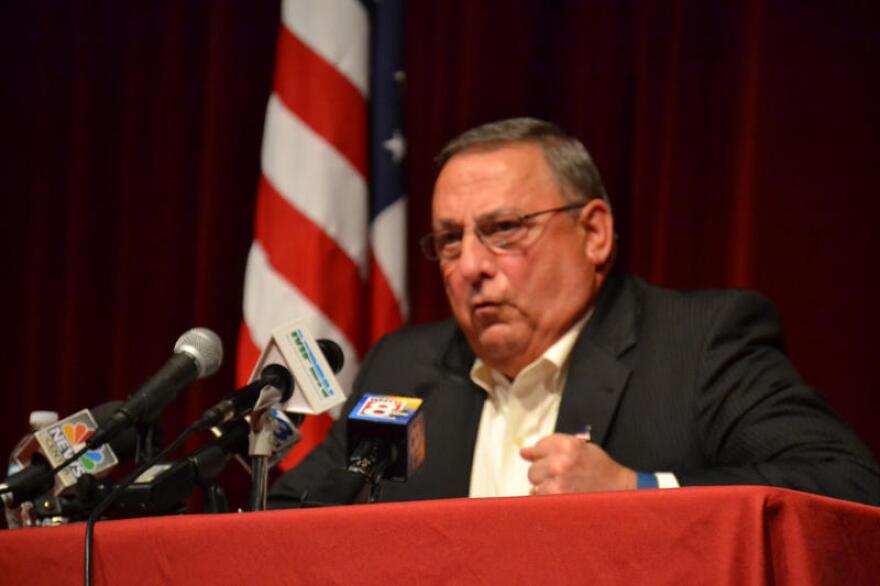Gov. Paul LePage claimed Wednesday that he did not sign a bill last year that diverted over $13 million to several ailing biomass facilities, though he actually did.
At his town hall forum at Spire 29 in Gorham, the governor was asked by a woman in the audience why he vetoed a hotly debated solar bill, but signed a controversial biomass bailout.
“Well ma’am, I will tell you, both of them were disasters and I didn’t sign off. I did not sign that bill. It went into law without my signature,” LePage said.
But LePage signed the proposal in April of last year. The governor has repeatedly lamented its passage, but he has also said that bailing out biomass energy plants was the only way to preserve the logging jobs that depend on the plants.
The biomass proposal passed the Democratic-controlled House and the Republican-led Senate by comfortable margins last year and it was endorsed by leadership in both partisan caucuses. Nonetheless, the proposal was contentious and rank-and-file members in both parties publicly railed against it.
Several lawmakers opposed the bill because the proposal used taxpayer money to support one biomass plant owned by a multinational private investment firm worth an estimated $33 million and another market capital company that reported $1.6 billion in revenue in 2015.
A draft proposal sought to tap the state’s rainy day fund for the bailout — a fund LePage has attempted to replenish to bolster the state’s credit rating. The final bill essentially intercepted money targeted for the rainy day fund before it got there.
The bailout resurfaced again this week after loggers complained that Stored Solar isn’t paying its bills. The company has already received more than $400,000 in taxpayer subsidies this year and it’s supposed to create 24 jobs while buying half a million tons of biomass over the year.
But Dana Doran, executive director of the Professional Logging Contractors of Maine, said Stored Solar, which operates plants in Enfield and Jonesboro, hasn’t paid many logging contractors in a month or more.
“Going as far back as second week in February. So the members just have not seen payments after that point in time for the majority of them. So it’s a very challenging situation,” he said.
So far, other companies receiving taxpayer subsidies have reportedly paid loggers.
LePage also said during his forum that he plans to testify before Congress on legislation that deals with the president’s abilities to create national monuments. The governor has opposed the Katahdin Woods and Waters monument created by President Barack Obama last year. He has since asked President Donald Trump to rescind the designation.
“The Legislature in the state of Maine voted against it. I took a position against it. [Obama] ignored us all and he did it anyways. And I think that was sinful,” LePage said.
The governor did not specify which bill he’ll testify on, but Republicans in Congress have been making efforts to overhaul the Antiquities Act since President Obama’s flurry of monument designations during his final term.
Earlier this year, 26 Republican senators signed on to a bill that would ensure that states have a say in monument designations and presidents can’t act unilaterally.



